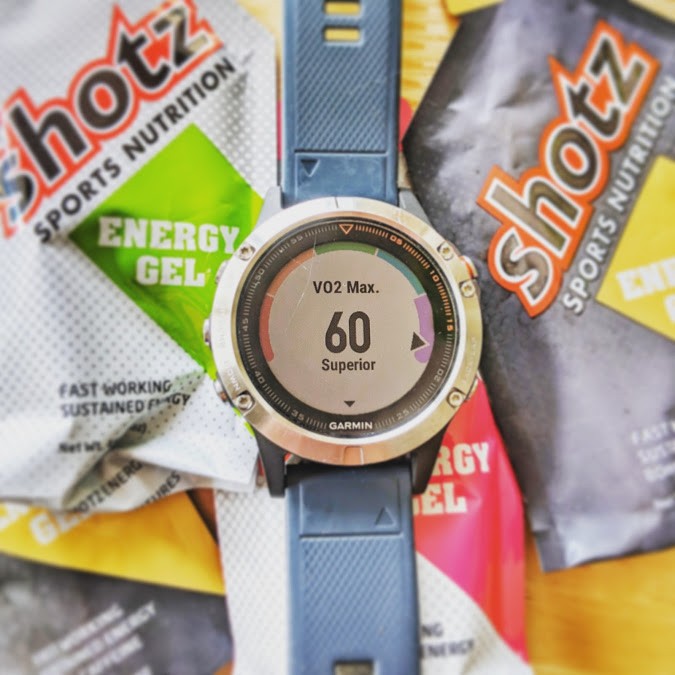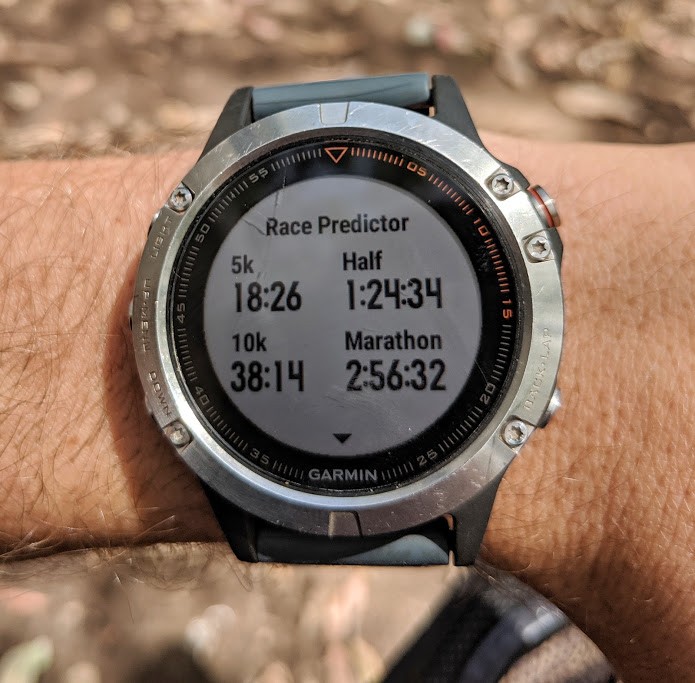Most running watches with a heart rate monitor show runners a watch predicted VO2 Max (read here if you aren’t sure what VO2 max is). With this magical number of VO2 max, our watches then give us a (often unrealistic) prediction of our possible 5k, 10k, half marathon and marathon times. Given that many of us runners care when our VO2 max goes up or down, we should probably know whether our watch measurements are actually accurate.
Most running watches feature a VO2 max prediction including Garmin watches which use the FIRST-BEAT method. However, the first-beat method can only rely on heart rate data. Heart rate can easily be effected by external factors including recent caffeine intake, recent meals and anxiety/stress. Furthermore, most wrist heart rate monitors are relatively inaccurate and a chest strap heart rate monitor is needed. First-beat state their prediction is usually within 3.5 ml/kg/min, which is relatively accurate.
A recent study looked at the accuracy of watch VO2 prediction vs. actual VO2 max in 28 random individuals. They found that for low fitness individuals, the watch prediction was mostly accurate. However, in high fitness participants, the difference between watch predicted VO2 max and actual VO2 max was on average 7.6 ml/kg/min (Pearson et al., 2018). This is a very significant difference!

In contrast, another study looking at the Garmin Fenix 5 found predictions of VO2 Max to be off by an average of 2.16ml/kg/min (Anderson et al., 2019). Although this is a significant statistical difference, it is close enough for recreational athletes.
Verdict: Should we care about watch predicted VO2 max
So given the studies above, it looks like our watches offer a measure of VO2 Max that is between 7.6 to 2.1ml/kg/min higher or lower than our actual VO2 Max measured in the lab. Furthermore, studies also suggest that watch measured VO2 Max usually underestimate our actual VO2 Max.
So although these measurements aren’t accurate, they are close enough to offer a reasonable measurement. Also, they give us a general trend of our VO2max is going up or down, which can reflect our aerobic fitness levels.
We recommend using the watch measured values to look at general trends in aerobic fitness over time. However, we must remember that VO2 max is influenced significantly by genetics and is only one aspect of athlete fitness. If the athlete with the highest VO2 Max always won the race then we wouldn’t bother racing at all (one exception is ultra-runner Killian Jornet who has an extremely high VO2 Max (92) and seems to always win the race).
Watch predicted race times
Our watches love to tell us we should be running a faster marathon or 10km time. They base these predictions solely on heart rate predicted VO2 max. So as we know VO2 max estimates can be inaccurate, we also know that race prediction times can be too. Garmin states that their race prediction times presume an appropriate training plan has been undertaken for that event, which is fair enough. So remember that just because your watch tells you you can run a 2:40 marathon doesn’t mean you can go out right now and do that. We must have the corresponding strength endurance in our legs and many other aspects of fitness that our watches cannot predict from heart rate alone.

We recommend using these race prediction times as something to aspire to. So don’t be disappointed if you don’t reach your race predicted time in your next marathon as 99% of other runners won’t reach theirs either.
Lastly, remember that how you feel about your current fitness and your recent race times are much better predictors of your fitness and future performance than watch predicted VO2 max and watch predicted race times.
References
Anderson, J. C., Chisenall, T., Tolbert, B., Ruffner, J., Whitehead, P. N., & Conners, R. T. (2019). Validating the Commercially Available Garmin Fenix 5x Wrist-Worn Optical Sensor for Aerobic Capacity. International Journal of Innovation Education and Research, 7(1), 147-158.
Pearson, A. G., Bastianelli, B., Workman, A. D., Herman, C. W., Schulz, J., Cornett, A., & Moore, R. W. (2018). Accuracy Of Vo2max Prediction Using A Gps Watch Following A 15-minute And Three Subsequent Runs: 2765 Board# 48 June 1 2. Medicine & Science in Sports & Exercise, 50(5S), 674-675.
